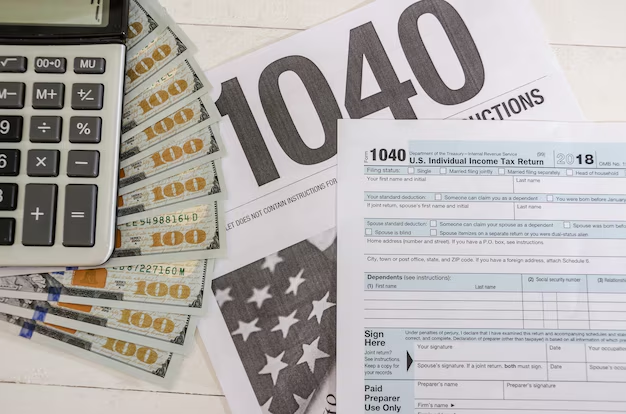Understanding State Income Tax in Utah: What You Need to Know
If you’re considering a move to Utah or are simply curious about its tax policies, you're likely asking, does Utah have a state income tax? The answer is straightforward: yes, Utah does have a state income tax. The implications of this, however, dive into more than just yes or no, affecting everything from what residents pay to how taxes impact economic behavior in the state. As part of our broader State Income Tax FAQ, this guide explores Utah's tax system, including related nuances that will help you make informed financial choices.
🏞️ How Utah's State Income Tax Works
A Flat Income Tax Rate
Utah stands out with its flat income tax rate. Unlike other states where tax rates increase with higher income brackets, Utah implements a single rate for all taxpayers. This means whether you earn a moderate income or are a high earner, you pay the same tax percentage on your income.
- Utah's flat tax rate: A key characteristic that simplifies calculations and planning for individuals and businesses.
- Tax filing requirements: Essentially the same as federally, but adjusted for state considerations.
Revenue Use
State income tax revenue in Utah is typically used to fund public services such as:
- Education: Public schools and higher education initiatives.
- Healthcare: Support for Medicaid and other health-related programs.
- Infrastructure: Roads, public transit, and other utilities.
Understanding the destination of your tax dollars can lend perspective, seeing how these taxes contribute to the community's well-being.
🌄 Key Subtopics in Utah's Tax Structure
Exemptions and Deductions
An integral part of understanding Utah's income taxation is identifying available exemptions and deductions. These can substantially lower taxable income and include:
- Personal exemptions: Specific allowances for the taxpayer and dependents.
- Standard deductions: A default reduction in income used by those not itemizing deductions.
- Itemized deductions: For those whose qualifying expenses exceed the standard deduction.
Exploring which deductions you can claim is crucial for optimizing tax payments, reducing the overall burden on your finances.
Tax Credits That Matter
Utah offers several tax credits which further aid residents in managing their tax obligations. These can include:
- Utah Educational Savings Plan Credit: For contributions made to an approved educational savings account.
- Renewable Energy Systems Tax Credit: Encouraging residents to adopt sustainable energy solutions.
Leveraging these credits can make a notable difference in your annual tax liabilities, often reducing them considerably.
🎓 Navigating Tax Residency
Determining Tax Residency
For individuals moving to or from Utah, understanding what constitutes tax residency is vital. Utah follows criteria such as:
- Permanent home test: Where your primary domicile is located.
- 183-day rule: Spending more than half the year in Utah typically deems you a resident for tax purposes.
Knowing where you stand helps ensure compliance and can avert potential penalties or surprise tax bills.
Part-Year Residents
For those who have moved part-way through the year, Utah provides special rules for part-year residents:
- Income earned while in Utah is subject to state tax.
- Credits for taxes paid to other states can be claimed to avoid double taxation.
This clarity aids individuals transitioning in or out of the state in a seamless compliance process.
💼 Business Implications
Business Taxes in Utah
While this guide focuses on individual income taxes, it’s worth noting the broader tax implications for businesses:
- Corporate tax rate: Separate from personal income tax, affecting company profits.
- Pass-through taxation: Business income passed directly to owners is subject to personal tax rates.
Understanding these distinctions can assist entrepreneurs and business owners in forward planning and financial strategizing.
Economic Environment and Taxation
Utah's taxation framework contributes to a business-friendly environment:
- Predictability of expenses: The flat tax rate provides clarity for business planning.
- State incentives: Offered to encourage businesses to relocate or expand operations within Utah, which may include tax credits or deductions.
Businesses often weigh these factors in deciding whether Utah's straightforward tax system aligns with their financial goals and logistics.
📊 Visual Summary: Key Takeaways
Here’s a handy reference to simplify your understanding of Utah's state income tax system:
📝 Summary of Key Facts
- Flat Tax Rate: A uniform rate for all income levels.
- Exemptions & Deductions: Maximize these to reduce taxable income.
- Credits: From education to renewable energy systems, harness available credits.
- Residency Rules: Clear criteria for what makes you a tax resident.
- Business Taxes: Separate considerations exist for corporate and pass-through entities.
📅 Practical Tips
- Plan ahead for tax obligations to avoid last-minute surprises.
- Keep detailed records to ensure you're claiming all eligible deductions and credits.
- Stay informed on any legislative updates that might affect future tax years.
🌟 Understanding and Preparing
In summary, Utah's state income tax system features a unique flat rate that simplifies personal financial planning, but doesn't eliminate the need to understand details. Whether it's recognizing potential deductions, credits, or planning around residency rules, being equipped with the right knowledge can empower you to make informed, strategic decisions that align with your goals. Always consider seeking advice from a tax professional, particularly if your situation involves complex elements like business income or multi-state tax liabilities.

Related Topics
- Are State Income Tax Refunds Taxable
- Are State Tax Refunds Taxable Income
- Can Business Deductions Reduce Your State Personal Income Tax
- Do I Have To File State Income Tax
- Do You Get State Income Tax Back
- Do You Pay Georgia State Income Tax On Qualified Dividends
- Do You Pay State Income Tax On Qualified Dividends
- Does Al Have State Income Tax
- Does Alabama Have a State Income Tax
- Does Alabama Have State Income Tax
